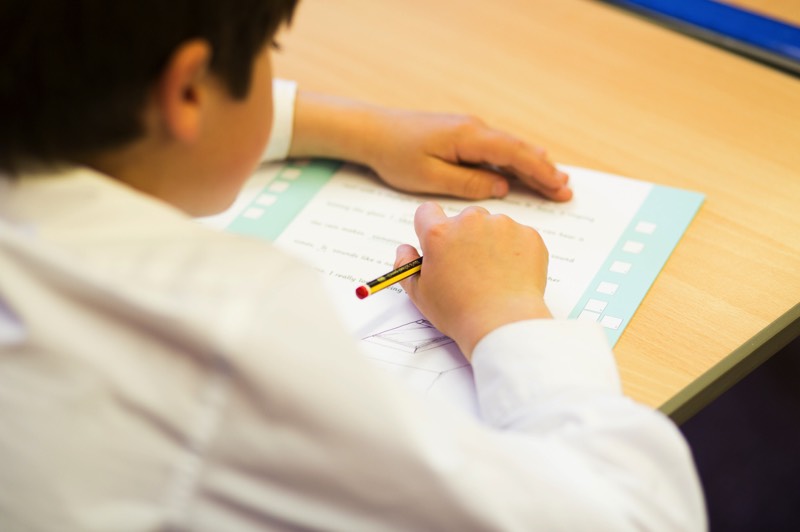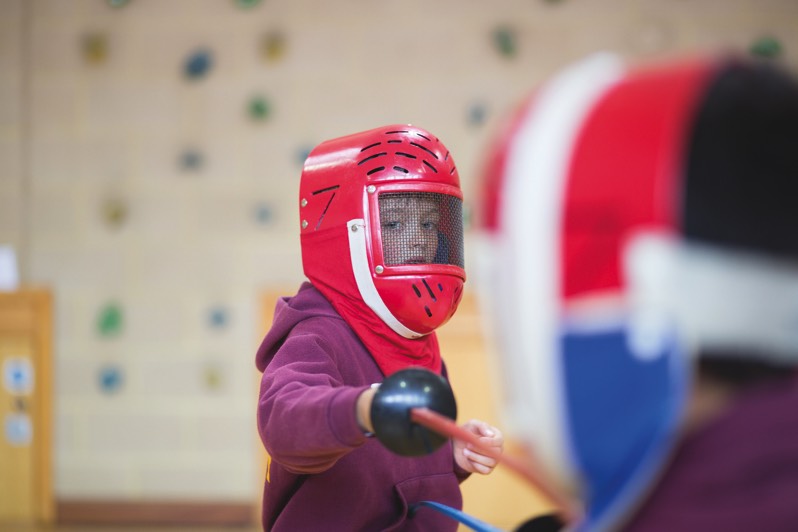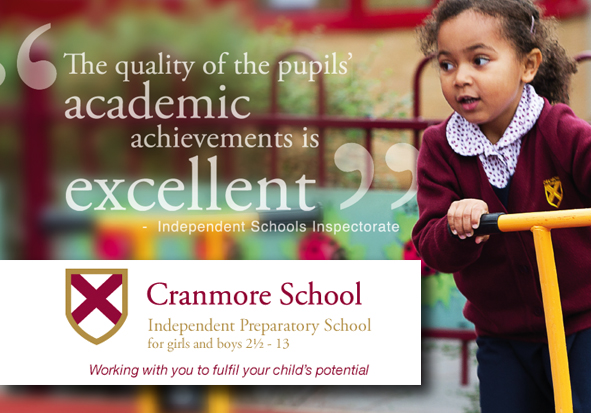EDUCATION
Surrey’s Premier Lifestyle Magazine
The great homework debate...
Michael Connolly, headmaster of Cranmore School, considers the value of homework in children’s education.

There can be few children who have not asked their parents or teachers at some stage: “What is the point of homework?” It might seem an odd question, for homework is usually regarded as being as natural a part of education as the air we breathe. However, the issue of its intrinsic value has been hotly debated by professional educators for many years, and not just in the UK, but in other highly developed countries too. For example, almost a decade ago the Center for Public Education in the USA came to the following conclusion:
The link between homework and student achievement is far from clear. There is no conclusive evidence that homework increases student achievement across the board. Some studies show positive effects of homework under certain conditions and for certain students, some show no effects, and some suggest negative effects.
Closer to home, even OFSTED declared at the end of the last century in a report entitled ‘Homework: Learning from Practice’ that: “It is very difficult to identify a clear homework effect separate from the influence of ... factors such as home and family background which are themselves commonly associated with achievement.” On the face of it, this is hardly a ringing endorsement for children doing any kind of homework. Nevertheless, this report does go on to highlight the underlying principles which can add value: “a clear link with schoolwork, a strong partnership with parents and proper setting and marking of work may all play a part.”
The link between homework and student achievement is far from clear. There is no conclusive evidence that homework increases student achievement across the board. Some studies show positive effects of homework under certain conditions and for certain students, some show no effects, and some suggest negative effects.
Closer to home, even OFSTED declared at the end of the last century in a report entitled ‘Homework: Learning from Practice’ that: “It is very difficult to identify a clear homework effect separate from the influence of ... factors such as home and family background which are themselves commonly associated with achievement.” On the face of it, this is hardly a ringing endorsement for children doing any kind of homework. Nevertheless, this report does go on to highlight the underlying principles which can add value: “a clear link with schoolwork, a strong partnership with parents and proper setting and marking of work may all play a part.”
Let us just consider these points for a moment. Of course, homework should never be some random activity or exercise simply to keep a child busy. Obviously it must be linked to what is being covered in school. A strong partnership with parents is crucial too. This is not to suggest that parents should do the task themselves or even assess their child’s work at home. Rather, it has been demonstrated that pupils will take homework more seriously if their parents show that they also believe it is worthwhile and helpful. The third point is critical – the setting and marking of work. It is important that the teacher sets a task which meets the child’s needs. In some cases this might be simple rote learning of tables or spellings, whilst it could equally be a more complex investigative project which requires a great deal of personal research from the pupil. In any event, a pupil is more likely to be fully engaged and derive real benefit from the process if they feel the task will improve their knowledge and help them make progress.
The prevalence of mobile devices which give access to rich internet resources has opened a world of opportunity which was unimaginable a few years ago. Many schools have created a bespoke VLE (Virtual Learning Environment) which can be populated with digital resources so that a child’s homework no longer needs to be a routine written exercise. Indeed, it can be a multimedia journey which will engage a pupil’s interest and creativity and, in the end, make learning more fun. This is the ideal and no doubt many homework tasks often fall short of this mind-blowing extravaganza. That is no bad thing. Children need to learn that ‘deferment of satisfaction’ is part of life, homework can sometimes be difficult, tedious or even banal, but ultimately its purpose is to benefit pupils in the long term. Therefore, it must surely be right that children come to recognise that giving the Xbox or TV a miss for a while in order to read a book, do some maths, research some science or practise a musical instrument will bring real benefits later.

At Cranmore School we have a schedule for homework which has been carefully set out to meet the needs of our pupils across different age groups and abilities. We are mindful of the fact that pupils have other interests outside of school: cubs, brownies, and sports clubs. In addition, we know that quality family time is vital for parents and their children alike. It is always tricky to judge what is the right amount but, like Goldilocks and the porridge, we believe that what we offer is just about right.
Cranmore was graded excellent for every category in its most recent inspection report, but it was reassuring to see that the quality of pastoral care was identified as being of particular note: “The pupils’ personal development is supported by excellent pastoral care, based on the teachers’ good knowledge of individuals, and caring relationships.”
In my view, this is the best strategy to ensure that pupils do not fall into a pit of self-doubt and misery. It is the quality of the relationships between staff and the pupils in their care which ultimately determines the pupils’ well-being.
In my view, this is the best strategy to ensure that pupils do not fall into a pit of self-doubt and misery. It is the quality of the relationships between staff and the pupils in their care which ultimately determines the pupils’ well-being.
essence info
Cranmore School has announced a programme of change to become a fully co-educational school for pupils aged two and a half to thirteen years.It is committed to providing a balanced curriculum which can develop each child’s potential. French, Spanish, Mandarin, Latin and Greek are taught.
Telephone: 01483 280340
Website: www.cranmoreprep.co.uk



